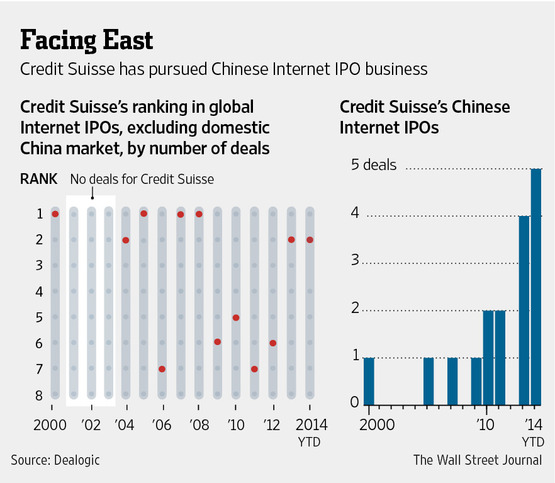Brokerdealer.com blog extract below courtesy of June 10 WSJ Aaron Back reporting.
As Alibaba Group prepares for the bright lights of Broadway, it is keeping potential investors in the dark. There is yet time to illuminate things.
The Chinese online-shopping giant is likely to release an updated regulatory filing soon in preparation for an initial public offering in New York, expected to raise more than $20 billion. A pre-IPO document released in May left gaping holes around Alibaba’s business and who controls it.
It seems a bare minimum to identify the more than two dozen partners who will effectively control Alibaba via special rights to appoint a majority of board members. The nature of these partners’ business relationships with Alibaba also should be known. It was a big oversight that the initial filing omitted this information. The Wall Street Journal has reported that the names of the partners will be included in the updated filing.
In addition, investors have complained that Alibaba didn’t break down results for its two moneymaking retail sites, Taobao and Tmall. Last month’s filing emphasized the importance of the Tmall business in the mix of the two. Faster Tmall growth means more revenue per item shipped. A higher Tmall contribution also would bode well for the transition to mobile devices, where it is harder to sell ads.




